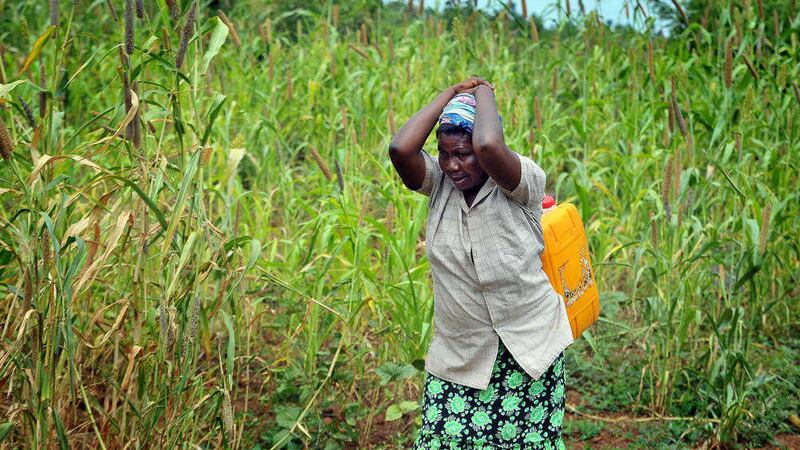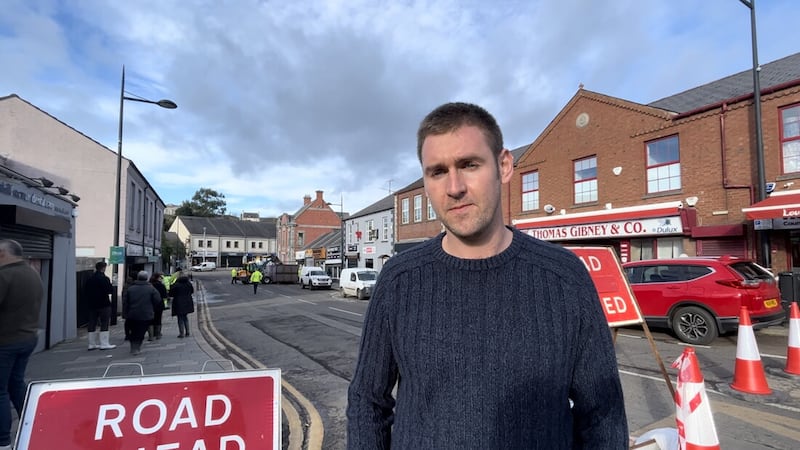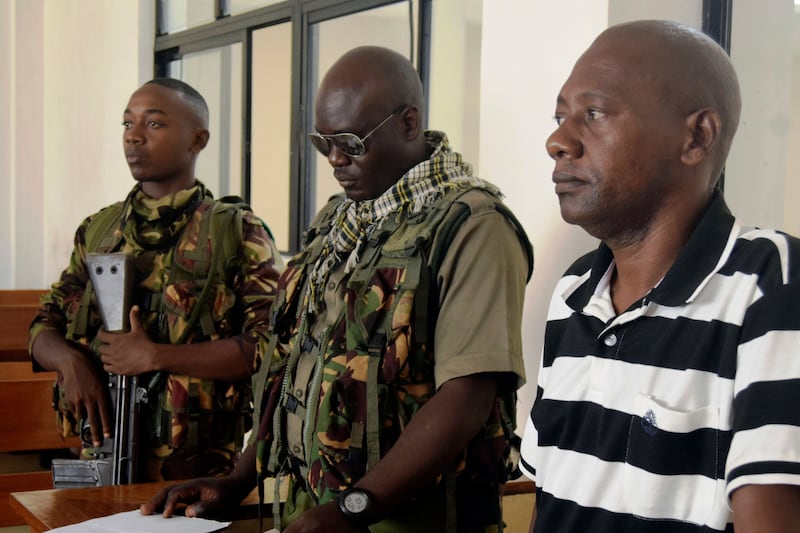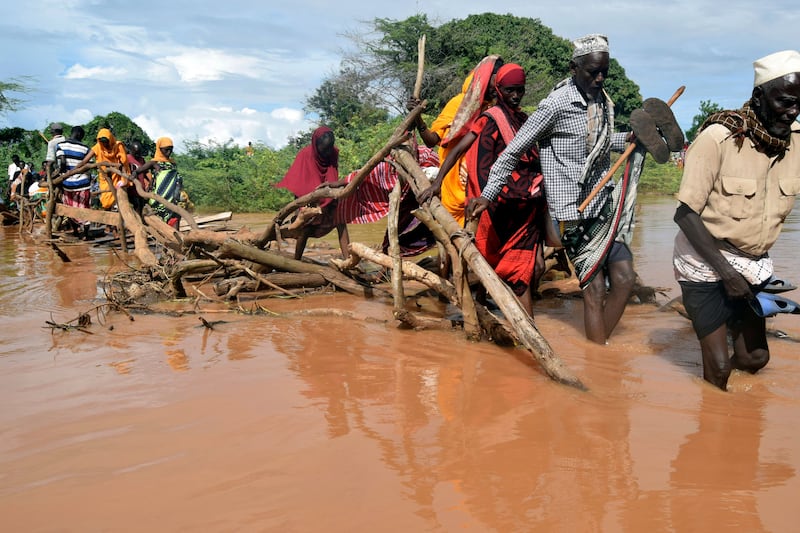Teresina Karimi is blind in one eye, living from hand to mouth and sometimes goes hungry just so her family gets by.
But the 45-year-old from a rural village south of Mount Kenya now has a ray of hope as she is to be one of the beneficiaries of this year's Trócaire lenten campaign.
The mother of five who lives in Kamatanka is often left to raise the family and run the farm herself as husband Julius had to move hundreds of miles away for work.
In Kenya, where there are very little good roads, this may as well be the other side of the world.
Julius sends the equivalent of £14 a month home - it is not enough.
Droughts are common in east Africa but over the last number of years, things have become worse. Climate change means farmers don't know when or if it is going to rain and if they will harvest any crops.
Year after year with weather becoming more unpredictable, families are going hungry, becoming more malnourished and living in despair.
That is why people like Julius feel they have no option but to head to cities for work to provide for their families.
Without her husband, Teresina says life is very difficult: "I feel weak, my heart beats very fast - it has an impact on my health."
She is forced to do casual labour on nearby farms to make extra cash to feed her family and get her younger children through school. She gets paid the equivalent of £1.35 for working 8am-4.30pm.
But the woman who has a very severe and painful eye problem says bending over to harvest only irritates her condition - "feeling like having chilli pepper in your eye".
Teresina has been told by doctors there is no cure but there are eye drops which can help ease the pain.
Often she is forced to go without the medicine because she cannot afford to buy it instead of meals for her kids. She says it causes her a lot of hurt and pain to see her children without food.
She described August to November as the "hungry months".
Like many other women left behind in villages, Teresina is forced to walk miles twice a day with 20 litre jerry cans on her back for water - the same water livestock use next to her.
Already crippled by pain, the heavy loads often in sweltering heat add even more pressure to her health. But she says she dreams of her husband returning for good.
Not only would Julius be able to help with the labour but Teresina says she misses the support, affection and companionship.
A few hours away in central Nairobi, women in the Kangemi slum face their own challenges.
Many have been forced to move from their family lands to the crammed packed urban settlements. There is no running water, no sanitation, no electricity. But more concerning are the levels of crime, sexual assaults, HIV diagnoses and cases of child exploitation. Abuse has almost become normal there.
One human rights worker at St Joseph's Parish where Pope Francis visited in Kangemi last year said: "Domestic violence is happening everywhere."
Betty Hamud, known locally as `Mama Betty' said: "I deal regularly with cases where women have been badly mutilated, stabbed or burned or even killed".
One woman who is getting help is Margaret. The former nursery school teacher moved from the countryside because she says she was being encouraged to stand on her own two feet but being set up with an older man she didn't want to marry. Believing she could make a better life for herself in Nairobi, Margaret fell in to the hands of an abusive husband with a heroin addiction.
"I did not know his true colour when I met him," she said.
Margaret who is now a mother to two has been diagnosed with HIV and worries about her children's future. She says her brother can help her but won't because of the virus' stigma. Her husband also has land but Margaret claims he won't get I.D. to access it because he is always spending money on feeding his opium habit.
Fr Angelo Munduni is the parish priest of St. Joseph’s which gets help from Trócaire. He says the challenges are daunting.
"It is a constant battle against all of these problems but with Trócaire's support we are making headway. The continued deterioration of life in rural areas will only result in more and more people having to leave the countryside and head to the cities.
"This will increase the pressure on slums such as Kangemi and the problems here will get worse. It is essential that the problems in the city and the problems faced by farmers are both addressed if we are to win this battle."
Trócaire is helping put water irrigation systems in place in rural Kenya to avoid people feeling like they have no other option but to flee. Small grey pipes are being installed back at Teresina and Julius' farm with gravity pulling water down from a river up country.
This means farmers will no longer have to rely on rains, they will be able to produce vegetables for a nutritious diet and have enough cash from selling the extra at market.
Irish aid workers in Kenya call this 'community empowerment'.
To find out more about Trócaire’s Lenten campaign log on to www.trocaire.org/lent or call 0800 912 1200. All donations to the campaign by the public in Northern Ireland will be matched, pound for pound.








